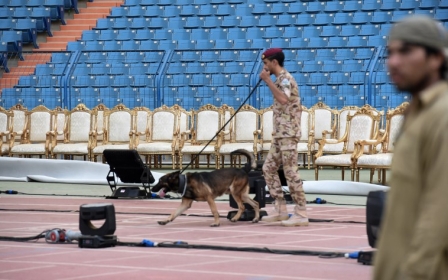Saudi Arabia to allow women to drive in 2018

Saudi King Salman on Tuesday ordered that women will be allowed to drive cars by June 2018, state media said, ending the conservative Islamic kingdom's status as the only country where that is forbidden.
The royal decree ordered the formation of a ministerial body to give advice within 30 days and then implement the order by June 2018, according to state news agency SPA.
It stipulated that the move must "apply and adhere to the necessary Sharia standards," without providing details, and said a majority of the Council of Senior Religious Scholars had approved its permissibility.
Prince Khaled bin Salman, the Saudi ambassador to the US, said women would not need permission from their guardians to get a licence or have a guardian in the car and would be allowed to drive anywhere in the kingdom, including the Islamic holy cities of Mecca and Medina.
Women with a licence from any of the Gulf Cooperation Council countries would be allowed to drive in Saudi Arabia, he added. He said the Interior Ministry would have to decide whether they could be professional drivers.
Saudi Arabia has been widely criticised for being the only country in the world that bans women from driving, despite ambitious government targets to increase their public role, especially in the workforce.
Women in the kingdom are also bound by law to wear long robes and a headscarf and require the consent of a male guardian for most legal actions.
Saudi hardliners have said that women should not drive, claiming that it compels them to promiscuity.
The kingdom has been opening more areas for women through the government's modernising reforms, which have sparked tensions with influential clerics upon whose support the ruling family relies.
An hour after the official announcement in Saudi Arabia, Khaled bin Salman, the ambassador, said it was "an historic and big day in our kingdom".
"I think our leadership understands that our society is ready. I think it's the right decision at the right time," the ambassador said.
Positive reactions quickly poured in from inside the kingdom and around the world, with the US State Department welcoming the move as "a great step in the right direction".
For more than 25 years, women activists have campaigned to be allowed to drive, defiantly taking to the road, petitioning the king and posting videos of themselves behind the wheel on social media. The protests brought them arrest and harassment.
Activist Manal al-Sherif, who was arrested in 2011 after a driving protest, took to Twitter following the king's announcement to express her relief. "Today, the last country on earth to allow women to drive... we did it," she wrote.
Latifa al-Shaalan, a member of the Shura Council, an advisory body, said the decision would strengthen women's employment in the private sector.
"This is an historic day and I cannot find the words to express my feelings and the feelings of thousands of Saudi women," she said on Arabiya TV.
Stay informed with MEE's newsletters
Sign up to get the latest alerts, insights and analysis, starting with Turkey Unpacked
Middle East Eye delivers independent and unrivalled coverage and analysis of the Middle East, North Africa and beyond. To learn more about republishing this content and the associated fees, please fill out this form. More about MEE can be found here.




